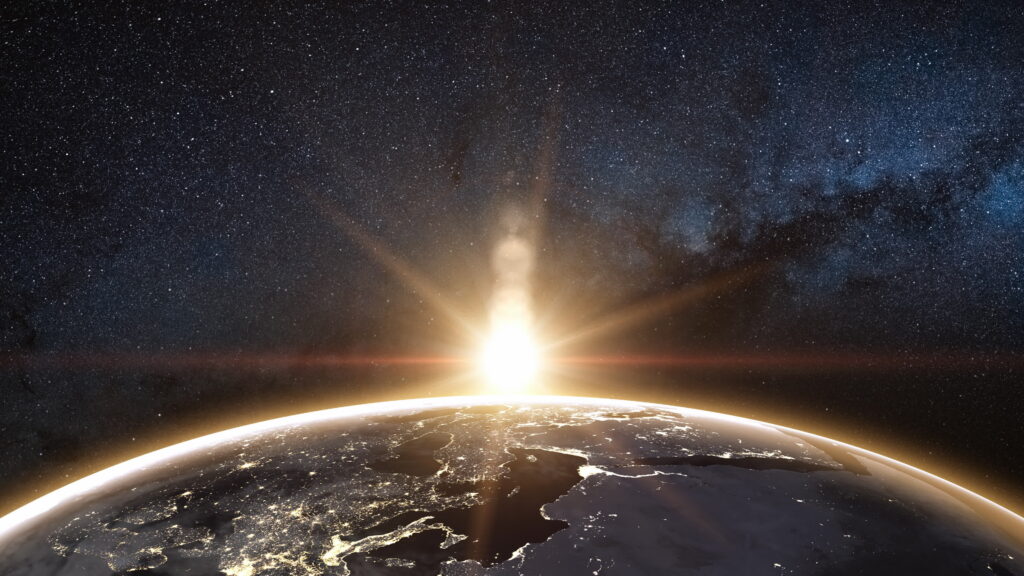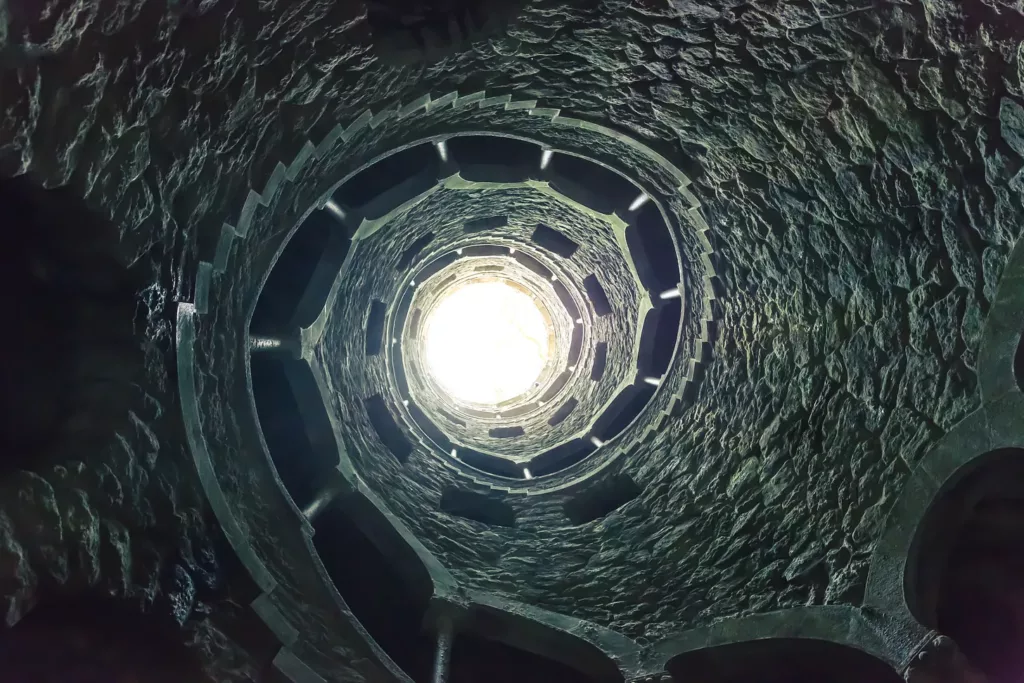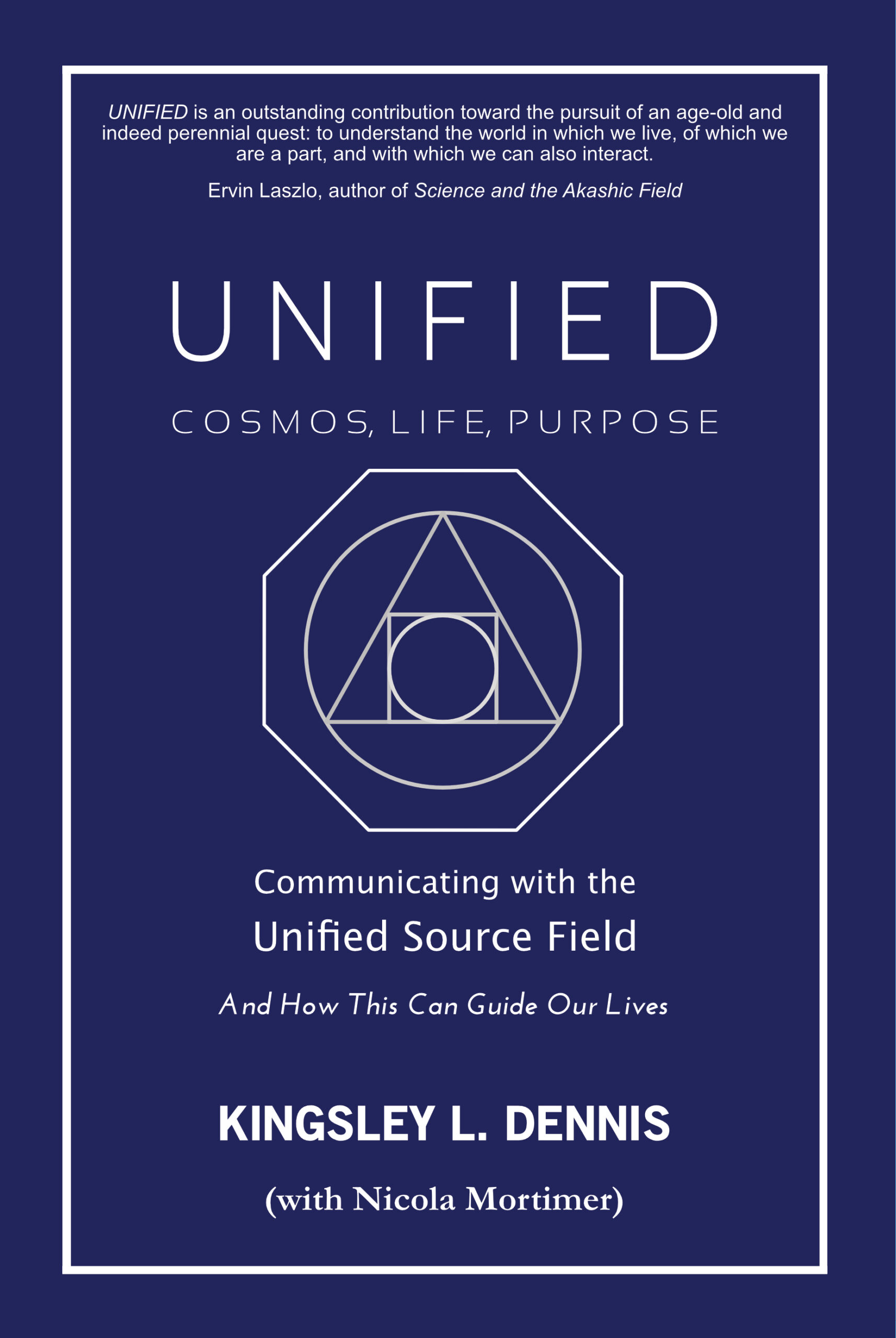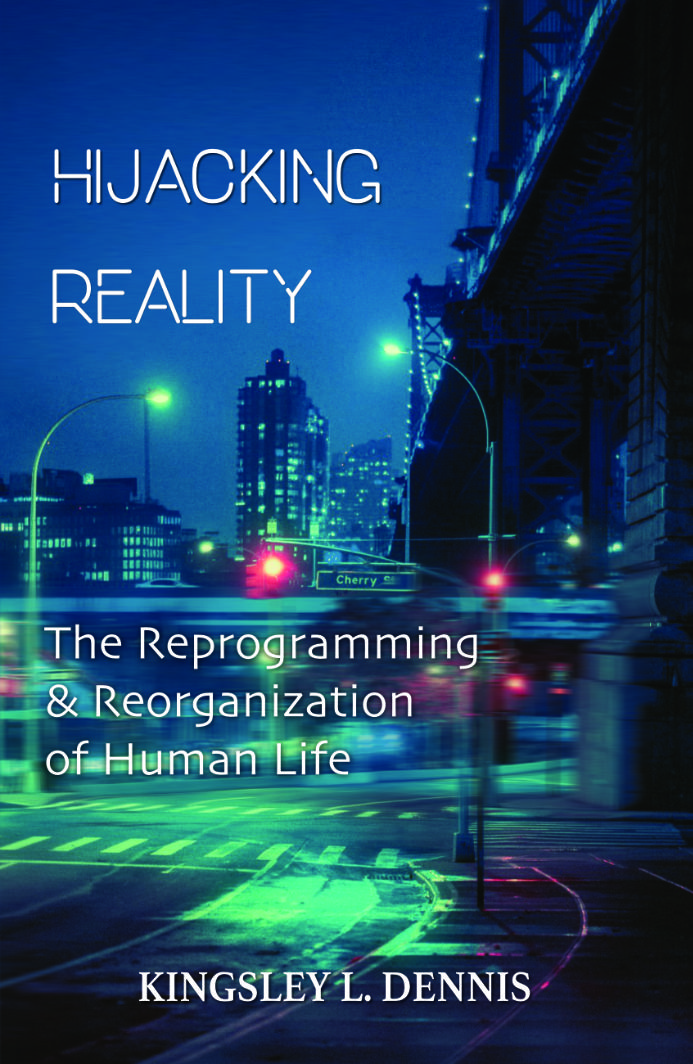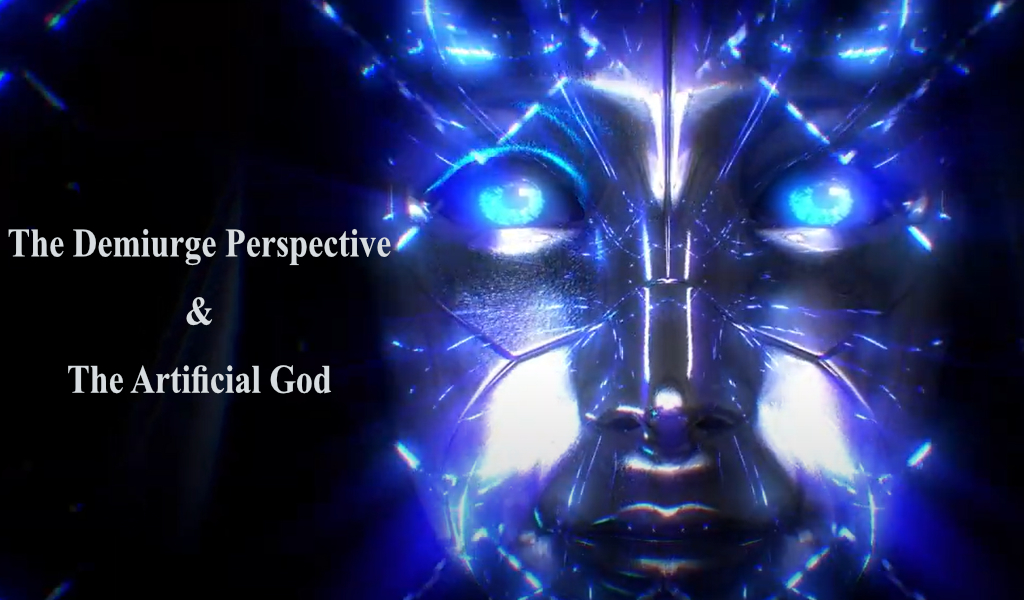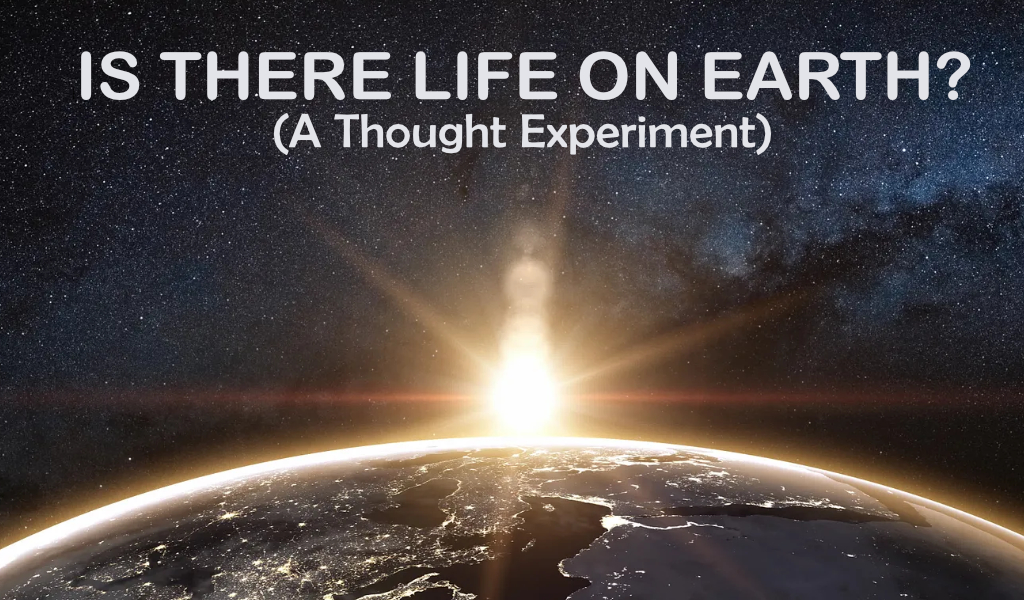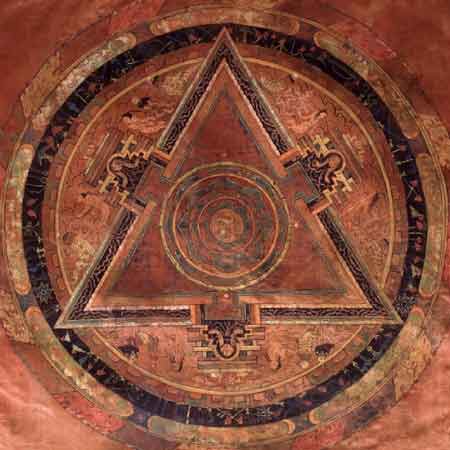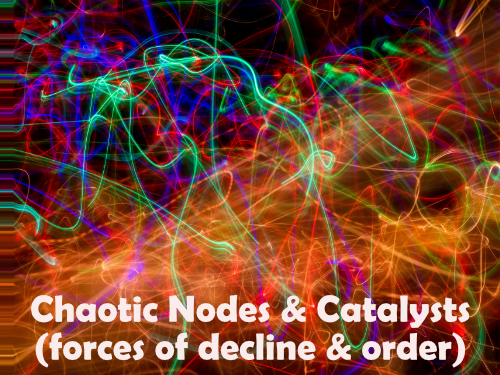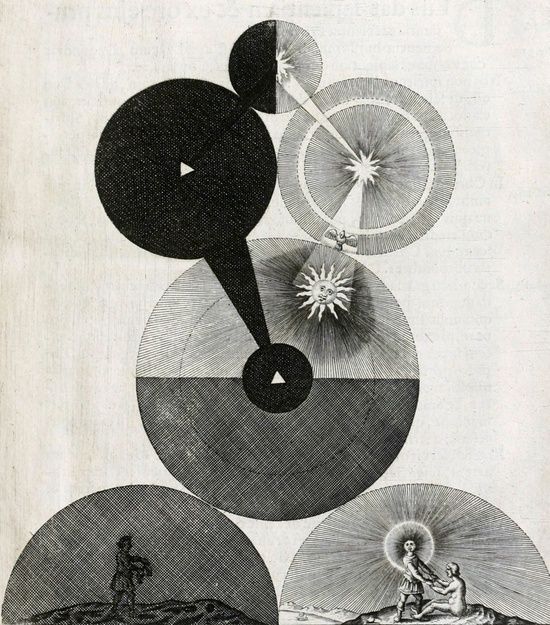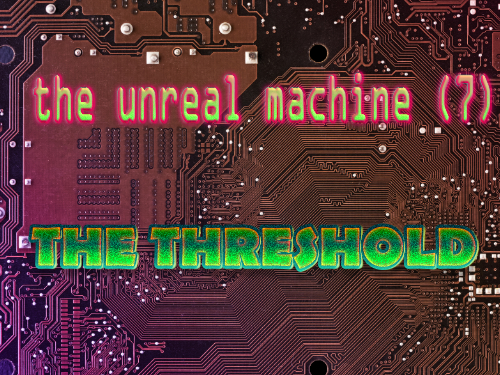[An essay taken from Ch.3 of New Revolutions for a Small Planet written by the author in 2010-2011 and published in 2012]
[A] mood of universal destruction and renewal … has set its mark on our age. This mood makes itself felt everywhere, politically, socially, and philosophically … This peculiarity of our time, which is certainly not of our conscious choosing, is the expression of the unconscious human within us who is changing. Coming generations will have to take account of this momentous transformation if humanity is not to destroy itself through the might of its own technology and science … So much is at stake and so much depends on the psychological constitution of the modern human.
Carl Gustav Jung
The rapid cultural rise towards a technological state of mind – a Western-birthed epoch of modernization and scientific technique – is simultaneously in danger of rushing humanity towards an irreversible abyss. We are an infant species that is literally ‘growing up in public’, and thus forced to live out – and hopefully outlive – all our errors and transgressions. As a relatively new addition to our planet, we have passed through consecutive waves of civilization and civilizing processes to emerge at the cusp of a new era: the transition from species infancy to species adolescence. This transition, I argue, will itself involve a collective ritual experience, not dissimilar to the initiation rites of indigenous societies: a species rite of passage. It is becoming increasingly evident that we will need to pass through such an intense ‘initiatory experience’ if we are to continue the evolutionary unfolding upon our terrestrial Earth. Upon this journey we have passed through various phases of socio-cultural organization, energy utilization and communication revolutions. In each epoch these traits have converged to characterize its specific phase; i.e. social organization is intrinsically related to energy use and communication technologies. These reconfigurations have defined social relationships and the temporal-spatial perceptions of the time which, in turn, influences the way human brains perceive their reality. It has been noted that there has been a general succession from mythological consciousness (oral cultures), to theological consciousness (script cultures), to ideological consciousness (print cultures), to psychological consciousness (electricity cultures).1 Modern technocultures are very much tied to an underlying psychological consciousness, aided in the last 100 years by the birth of psychoanalysis and a wealth of psychiatric studies and applications. Our modern forms of warfare embody a mixture of ideological consciousness (nationality, religion, etc.) and psychological consciousness (fear of loss/scarcity, need for security, etc.) that have only exacerbated a mental warfare against individuals and pushed us collectively towards a global state of psychosis. In a similar manner philosopher Jean Gebser described the five structures of consciousness as archaic, magical, mythical, mental and integral. We are thus struggling with our mental stage, an unbalanced and overly rational era, until we can be thrust into the age of integral consciousness – the next transformation.
Yet whilst the Earth is in ecological turmoil, humanity is in psychological and spiritual turmoil. As turbulent events on both sides are accelerating exponentially, time is running out in which this almost vertical curve can continue. The natural equilibrium between human and Earth seems to have been lost, and this disequilibrium is now feeding upon a kind of chaotic energy that pushes the situation further out of balance. In the past, human societies managed their time, work and social balance by integrating their activities with seasonal time and movements, whereas our mega-societies have now virtually abandoned these cycles and bodies of knowledge. With this loss of functional cosmology and planet-solar-cosmic rhythm we have glided into a period of technical progress divorced from a grander significance and belonging. The once enchanted human mind, inspired by epiphany, revelation, intuition and cosmic connection, has ventured into disenchantment and what for many is drudgery.
Despite having developed through various stages of consciousness, of states of mind, and having reached the final step in this sequence, we are now desperately in need of leaping into a new mind. In other words, our current psychological consciousness may seem to be a new mind, even a radical mind, yet I argue that it is a mindset that represents a successive growth of the old consciousness; as such, it is the final stage of the old sequence. Just as the octave of the musical scale needs an interval to ‘jump’ to the next pitch, so too does our present octave of consciousness require an interval in which to jump to a new sequence. Our present sequence (which I shall refer to as the old consciousness or old mind) has culminated in creating an artificial context for our present living. Through extravagant use of energy and a leaning toward ‘mechanism’ we have slipped away from the organic flow of an ever-renewing world. In the words of one 20th-century commentator:
The civilization of our time, with its unlimited means for extending its influence, has wrenched man [sic] from the normal conditions in which he should be living. It is true that civilization has opened up for man new paths in the domain of knowledge, science and economic life, and thereby enlarged his world perception. But, instead of raising him to a higher all-round level of development, civilization has developed only certain sides of his nature to the detriment of other faculties, some of which it has destroyed altogether … modern man’s world perception and his own mode of living are not the conscious expression of his being taken as a complete whole. Quite on the contrary, they are only the unconscious manifestation of one or another part of him. From this point of view our psychic life, both as regards our world perception and our expression of it, fails to present an unique and indivisible whole.2
This suggests that we have adopted a lopsided, inharmonious manner of development. Our old mind has spurred the growth of particular physical aspects of life – science, technology, management, control, etc – to the detriment of a holistic, integrated ‘whole mind’ that incorporates the sustainable, natural cycles of an organic Earth. A shift to alternative cultural forms, one that would serve to place humanity within the dynamics of our planet, is required. We need to adapt to an evolving, changing planet rather than attempting to force a much more resilient planet to adopt an ego-driven, ravenous late-comer species.
Nothing short of a global revelatory experience is required. An experience that would be able to awaken a collective human consciousness towards the grand evolutionary journey ahead: both for our species and for planet Earth. We have moved into our Crisis Window – a period for intense change whereby we are called upon to make the leap from the octave of the old mind (characterized by the pathology of power) to the beginning sequence of a new integral mind (characterized by collaboration and compassion). For the past several thousand years the human race has defined itself through crisis and calamity, struggle and greed. We have crammed ourselves into conurbations; densely-packed city spaces where, daily, we pass thousands of people, with tens of thousands more living within a few minutes of where we are, and yet we each act independently of each other, unaware of our intrinsic interdependence. Individually we act out our differentiated roles, utilizing bonds, networks when we need to, often feeling isolated at the same time. Psychologically we are separated, placed alone in our endeavours, whilst collectively being socially organized and effectively regulated and managed. Such a state of collective existential aloneness (perhaps aloofness?) reflects the old-mind energies of competition and struggle, which is an anti-social psychology and behaviour, and one that is damaging to our planet and may be forced into sudden change. In some ways this state-of mind behaviour reflects the mythological ‘Fall’ which supposes an underlying form of subconscious collective guilt. As mythologist Richard Heinberg notes:
As human consciousness lost contact with its internal, heavenly source of power, technology emerged as a power substitute. Its first appearance was as sympathetic magic and as the invocation of spiritual beings to change Nature for human benefit. However, as human awareness became increasingly restricted to the material world, purely mechanical technologies appeared.3
Our relatively modern mechanical-technological societies are in need of an overhaul – a psychophysical transformation – if we are to successfully navigate a global shift/initiation toward a future that is sustainable for the planet.
We are struggling through a corridor of dwindling energy; as we are extending our reach through ever more extensive infrastructures (communication, travel, supply chains, etc) we are relying more and more upon structures that are energy-intensive. Further, people are racing to reach out to one another while corporate and national interests race to control, store, utilize and manage the fundamental resources of civilization. We need to fundamentally alter how we use and manage both our material and psychic energies. It is for this very reason that I state we are heading towards a psychophysical transformation of life on planet Earth.
It is almost certainly a race between an emerging global consciousness (a new sequence of psychic evolution) and major social and cultural disruptions. Despite our modern era of social and human rights, ethnic sensibilities and ethical sensitivities, we have already been pushed to a critical threshold whereby a dramatic, and relatively sudden, change is upon us. Indeed, we may already have reserved our ticket for a collective near-death experience: the shock initiation required for our global wake-up call and psychophysical transition.
Rites of Passage
Michael Grosso echoes the words of Russian sociologist Pitirim Sorokin when he says that:
… ours is a disintegrating sensate culture on the threshold of becoming a new ideational culture, a culture of higher consciousness. We are, we could say, in the midst of the near-death experience of our sensate civilization.4
Although our ‘sensate culture’ (read ‘secular culture’) is beset by the denial of death, the signs of a dying cycle – a death before renewal – are all around us. We have accelerated (exploded) towards the overstretched reaches of our energy-intensive systems. The only alternative available to us, if we do not now wish to face a sudden implosion, is to undergo a rite of passage: an initiatory experience of death and renewal to mark our passage from species infancy to species adolescence. According to Elizabeth Kubler-Ross, a psychiatrist in near-death studies, the terminal condition is a challenge to growth; it shakes up the basic structure of personality and allows new possibilities of perception and relationship. In a play by Luigi Pirandello – The Man with a Flower in his Mouth – a man emerges from the doctor’s office with a fatal diagnosis; with this knowledge of impending death the man’s world suddenly changes and every small thing has significance. He undergoes a conversion of consciousness: a bleak diagnosis and shock followed by a courageous renewal. Similarly, humanity may be caught up in a forced fatal diagnosis for change as our global civilizations begin to enter their near-death throes. Perhaps ours is a world with a flower in its mouth.
Another way to view the passage of Western civilization is as a preparatory stage towards an initiatory event; a movement geared towards arriving at a rite of passage, a transition period, in which we must encounter a dark period. This dark period is to be characterized by warfare and the nuclear crisis; environmental degradation and the ecological crisis; cosmic alienation and spiritual crisis; to arrive finally at a transformation for individuals, our species, and our planet. It is perhaps an historical encounter with mortality on an epic scale, signalled by spiralling unrest in the collective consciousness of humanity. Just what this encounter will entail cannot be entirely known, yet the signs of global stresses are now becoming increasingly visible: problems with natural resources (fuel, food and freshwater); climatic disruptions; biodiversity loss; deforestation; ocean acidification; loss of agricultural land; chemical pollution of the stratosphere; weakening of the Earth’s magnetosphere, and more. Our initiation encounter is thus likely to place us face to face with the darker, mortal aspects of our existence; with death, disruption, chaos and a crisis of community and civilization. That we have no cultural memory of having encountered such an epochal transition before places us in frightening new territory. As Richard Tarnas states:
Perhaps the fact that our culture does not provide rituals of initiation is not simply a massive cultural error, but rather reflects and even impels the immersion of the entire culture in its own massive collective initiation. Perhaps we, as a civilization and a species, are undergoing a rite of passage of the most epochal and profound kind, acted out on the stage of history with, as it were, the cosmos itself as the tribal matrix of the initiatory drama.5
Tarnas goes on to say that as a species we may now be engaged in a race between initiation and catastrophe.
At the same time, however, we do not fully understand the process of initiation – of having to face our dark side, pass through a series of struggles, and emerge the hero. Part of the initiation – the suffering and the inner/outer struggles – is an intrinsic search for meaning; the journey to the underworld and back is not only an external test of fortitude, willpower and determination, it is also a necessary journey to purge and prepare. The ordeal sets us up to emerge after the trial as a matured and, hopefully, wiser being. The collective consciousness of humanity is currently manifesting tremors that are all too often manipulated by social forces into fear and insecurity. Yet we are required to transform our species mind, our global thinking, into a more energized, focused and integral mind-at-large. We are teetering on the edge of the hero’s journey – the descent into the underworld and back – the initiation, rite of passage, our dark night of the soul.6 The ‘dark night of the soul’ may involve a personal and collective crisis of meaning, a disorientation (perhaps even despair) where identity of the self is dissolved and renewed. This process has often been depicted in myth as rites of passage. According to famed mythologist Joseph Campbell there are three phases in the rites of passage: separation, initiation and return. The middle phase – the initiation – is the transformative stage, the transitional impulse, the transfiguration, that sets up the way forward for the return: a return to the world as a renewed force.
Our own global ‘dark night of the soul’ may very well symbolize humanity’s own death–rebirth ritual that shamanistic and indigenous cultures recognize during transitions, such as from childhood to adulthood; from dependence to independence; from innocence to maturity. By passing through a global initiation period, a mass psychical immersion, we may be provided with the energies and impulses to catalyse a growth in psychical awareness and understanding – a transition from a psychological to integral stage of consciousness. As Duane Elgin says:
At the core of our history as a species is the story of our movement through a series of perceptual paradigms as we work to achieve our initial maturity as a self-reflective and self-organizing planetary civilization.7
Elgin believes that we are passing through a series of ‘superheated decades’ from which a ‘new human alloy may emerge’. Yet such fiery decades will see the suffering of millions as destruction and disorder compel us to act against our collective complacency:
Needless suffering is the psychological and psychic fire that can awaken our compassion and fuse individuals, communities, and nations into a cohesive and consciously organized global civilization.8
Physical discomfort, distress, anguish and insecurity may have to be the price we pay in order to catalyse integral consciousness and a new planetary era. As Elgin puts it:
Eventually we will see that we have an unyielding choice between a badly injured (or even stillborn) species-civilization and the birth of a bruised, but relatively healthy, human family and biosphere.9
A shared psychological trauma combined with a series of profound physical crises may be the necessary requirements – the minimum price of admission – for the global initiatory immersion towards a psychophysical transformation of life on planet Earth.
On a related matter it is interesting to note that in the early to mid-1980s two hypnotherapists in the US – Chet Snow and Helen Wambach – performed a series of hypnotic future-life progressions with groups (in both the US and in Europe) consisting of varied age ranges. This experimental project initially began as a means to affect a patient’s cure, then expanded as it became clear that a series of unusual data was being gathered. It began to emerge that nearly all of the patients, when progressed to a future life, witnessed living in a post-disaster scenario. All groups of patients were then progressed to a time much further into the future; again, all accounts were of civilizations that had emerged after a global cataclysm of some unknown type. Snow and Wambach were able to classify 90 per cent of these future scenarios into what they termed as four future types:
1 In-Space Habitats – off-Earth in space stations, colonies, or other planets;
2 New Age Communities on Earth – usually near mountains or the coasts, in natural surroundings;
3 Hi-Tech Urban Centres – usually in domed cities, artificially enclosed centres, or underground;
4 Rural Survivors – in more basic villages with little resources, living amongst the rubble of once-great cities.10
Whilst this is not a verification of future catastrophes, what it does show, at the very least, is a subconscious concern, or anxiety, about our future. It also demonstrates a potential collective unconscious psychosis that acts to warn us of potential impending worldwide crises. Chet Snow, one of the initiators of the future-life progressions, comments that:
If a species or planetary consciousness does exist, then today’s subconscious premonitions of impending catastrophes … may mirror collective unspoken fears that only drastic, dramatic change can solve our current world order’s many thorny problems.11
Snow goes on to say that in order to choose and develop positive alternatives for our future it is first necessary to face our ‘deeply programmed fears of disaster’; in effect, stepping into the underworld journey, struggle through the initiatory event, and to return/emerge as a renewed hero.
Somewhat surprisingly this mythological hero’s journey of darkness and return is also mirrored in the now extensively documented cases of individual near-death experiences (NDEs). As in the case of future-life progressions, many people who experienced a close call, to the extent that they had an out-of-body experience as a result of nearly dying (or in some cases being clinically dead for a short period), reported unusual insights. Psychologist Kenneth Ring, who has studied the near-death experience for nearly 40 years, has found that people return from the experience with a changed worldview, often one that leans towards a (re)energized psyche and consciousness. Perhaps, to use the previous symbolism, they returned with a flower in their mouth. In one series of sessions Ring noted how more than 50 per cent (compared to less than 20 per cent of control group) stated that after the NDE they were flooded with more information than they could absorb, and that they also claimed to be able to process new information better than before. There was also widespread agreement across all of Ring’s groups that those who had the near-death experience felt that humanity was in the midst of an evolutionary shift toward greater spiritual awareness and higher consciousness:
… all groups tend to agree that these experiences reflect a purposive intelligence and that they are part of an accelerating evolutionary current that is propelling the human race toward higher consciousness and heightened spirituality.12
Ring remarks that the real significance of the ‘extraordinary encounters’ of NDEs may in fact lie in their ‘evolutionary implications for humanity’. Similarly, another NDE researcher Margot Grey came to an almost identical conclusion in her book Return from Death:
It would seem that similar physiological mechanisms are operating in both the NDE and kundalini phenomena and that they are both aspects of the same evolutionary force. Taken together, these spectacular instances of transformation add up to a surprisingly large and increasing percentage of the population and might therefore be expected to have a growing influence on the collective awareness of the rest of the species, at both a conscious and subconscious level … It would appear that a new breed of mankind may be about to be born, and that in order for this to happen our consciousness and biological structure is undergoing a radical transformation. What we seem to be observing is a rebirth process which … will eventually culminate in bringing forth an enlightened human being who has knowledge of the life and order of the universe.13
These are indeed weighty and profound speculations – that the near-death experience is a forerunner, or part of a grander process, that provides a ‘rebirth process’ that will culminate in the next stage of humanity’s evolution.
These ‘otherworld’ or out-of-body experiences (OBEs), including the hypnotic future-life progressions, all share similar patterns in that the mind-at-large (a phrase used initially by philosopher Michael Grosso), or the collective consciousness of humanity, is working with images/signals that tell of both physical and psychical grand shifts. In other words, the Earth herself may be entering a period of instability and disruption whilst simultaneously catalysing a dramatic, and perhaps unsettling, transformation in human consciousness. The global initiation – our rites of passage – may thus entail a collective near-death experience that will not only affect us physically and psychically but also directly involve our planet Earth.
1 Rifkin, J, The Empathic Civilization: The Race to Global Consciousness in a World in Crisis, 2010, Polity Press.
2 An extract from the writings of G I Gurdjieff taken from http://www.gurdjieff.org/needleman2.htm
3 Heinberg, R, Memories & Visions of Paradise: Exploring the Universal Myth of a Lost Golden Age, 1990, The Aquarian Press
4 Grosso, M, The Final Choice: Playing the Survival Game, 1985, Stillpoint Publishing, p5
5 Tarnas, R, ‘Is the Modern Psyche Undergoing a Rite of Passage?’, 2001, http://www.cosmosandpsyche.com/Essays.php, p19
6 Dark Night of the Soul is the title of a poem and treatise written by 16th century Spanish Roman Catholic mystic Saint John of the Cross
7 Elgin, D, Awakening Earth: Exploring the Evolution of Human Culture and Consciousness, 1993, William Morrow & Company, p24
8 Elgin, D, Awakening Earth: Exploring the Evolution of Human Culture and Consciousness, 1993, William Morrow & Company, p121
9 Elgin, D, Awakening Earth: Exploring the Evolution of Human Culture and Consciousness, 1993, William Morrow & Company, p150
10 Snow, C B, Mass Dreams of the Future, 1989, McGraw-Hill
11 Snow, C B, Mass Dreams of the Future, 1989, McGraw-Hill, p50
12 Ring, K, The Omega Project: Near-Death Experiences, UFO Encounters, and Mind at Large, 1992, William Morrow, p190
13 Cited in Ring, K, The Omega Project: Near-Death Experiences, UFO Encounters, and Mind at Large, 1992, William Morrow, p170


